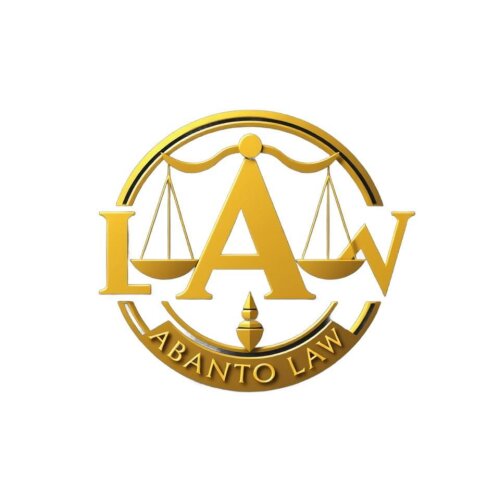Best Debt & Collection Lawyers in Makati City
Share your needs with us, get contacted by law firms.
Free. Takes 2 min.
List of the best lawyers in Makati City, Philippines
Philippines Debt & Collection Legal Questions answered by Lawyers
Browse our 5 legal questions about Debt & Collection in Philippines and read the lawyer answers, or ask your own questions for free.
- The co-maker used the money and when they died, is your partner obligated to pay for it?
- My account is in debt to my sister and she is my co-maker. She passed away. Can her husband pay his wife's debt even though her wife is a co-maker?
-
Lawyer answer by Recososa Law Firm
Hello: Under Philippine law, the obligation of a co-maker in a loan contract is solidary in nature, meaning the lender may go after any one of the signatories, including you, for the entire obligation. The death of a co-maker does...
Read full answer - We have a lot of debts with different loan platforms that would be around 300,000
- We would like to seek assistance though we both have work as of now by paying the interest monthly greatly impacted our living expenses such as foods rent and utilities we would like to know a way to have a sustainable living for our 2 kids but still responsibly paying... Read more →
-
Lawyer answer by Islaw - Expert Lawyers
Subject: Re: Request for Assistance with Debt and Living ExpensesDear,Thank you for reaching out and sharing your situation with us. We understand how challenging it can be to balance financial responsibilities while ensuring a stable and healthy environment for your...
Read full answer - Can a lender sell the property pledged by default lender?
- The lender pledged her share of the inherited house to a borrower. Borrower defaulted in payments. The borrower has no other property.
-
About Debt & Collection Law in Makati City, Philippines:
Debt & Collection law in Makati City, Philippines, governs the process of collecting debts owed by individuals or organizations. It involves various legal procedures and regulations to ensure fair treatment of creditors and debtors. Understanding these laws is essential for both parties involved in a debt collection process.
Why You May Need a Lawyer:
There are several situations where you may need a lawyer specialized in Debt & Collection law in Makati City, Philippines. Some common scenarios include:
- Dealing with aggressive debt collectors
- Facing a lawsuit for unpaid debts
- Negotiating debt settlement agreements
- Filing for bankruptcy
Local Laws Overview:
Key aspects of local laws relevant to Debt & Collection in Makati City, Philippines include:
- The Civil Code of the Philippines
- The Financial Rehabilitation and Insolvency Act
- The Rules of Court
Frequently Asked Questions:
Q: What are the rights of debtors in Makati City?
A: Debtors in Makati City have the right to be treated fairly and respectfully by debt collectors. They also have the right to dispute debts and request validation of the amount owed.
Q: Can creditors harass debtors in Makati City?
A: No, creditors are not allowed to engage in harassing or abusive behavior when collecting debts in Makati City. Debtors have legal protection against such practices.
Q: How long can a creditor pursue a debt in Makati City?
A: The statute of limitations for debt collection in Makati City is typically six years from the date the debt became due. After this period, creditors may no longer legally pursue the debt.
Additional Resources:
For further information on Debt & Collection in Makati City, Philippines, you may consider contacting the following resources:
- Integrated Bar of the Philippines (IBP) - Makati Chapter
- Philippine Association of Debt Management Companies (PADMC)
- Makati City Hall - Office of the City Legal Department
Next Steps:
If you require legal assistance in Debt & Collection in Makati City, Philippines, it is advisable to consult with a qualified lawyer who specializes in this field. You can schedule a consultation to discuss your specific situation and explore your legal options for debt resolution.
Lawzana helps you find the best lawyers and law firms in Makati City through a curated and pre-screened list of qualified legal professionals. Our platform offers rankings and detailed profiles of attorneys and law firms, allowing you to compare based on practice areas, including Debt & Collection, experience, and client feedback.
Each profile includes a description of the firm's areas of practice, client reviews, team members and partners, year of establishment, spoken languages, office locations, contact information, social media presence, and any published articles or resources. Most firms on our platform speak English and are experienced in both local and international legal matters.
Get a quote from top-rated law firms in Makati City, Philippines — quickly, securely, and without unnecessary hassle.
Disclaimer:
The information provided on this page is for general informational purposes only and does not constitute legal advice. While we strive to ensure the accuracy and relevance of the content, legal information may change over time, and interpretations of the law can vary. You should always consult with a qualified legal professional for advice specific to your situation.
We disclaim all liability for actions taken or not taken based on the content of this page. If you believe any information is incorrect or outdated, please contact us, and we will review and update it where appropriate.









